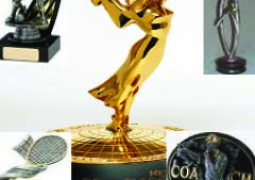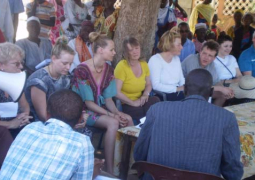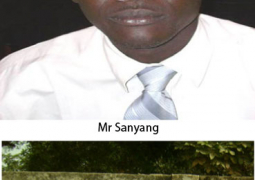In few days from now, Muslims will be celebrating the Eid-al-Fitr, the feast that marks the end of the holy month of Ramadan. During the Ramadan, Muslims are obliged to fast from dawn to dusk - a religious mandate that has happily been fulfilled yet again this year. To our Muslim brothers and sisters, we heartily congratulate you on the successful completion of the one-month of fasting, as taught and practised by the Holy Prophet Muhammad (Peace and blessing be upon him).
The Ramadan teaches the faithful the value of self-restraint and moderation in all that they do in every aspect of their everyday life. The Muslim has to understand and internalise and express this core value in their daily conduct - business, social and family - in order to be worthy of the faith - total submission to the will of Allah at all times and in all circumstances.
But it is sad to note that this cardinal value is apparently discarded as soon as the Ramadan is over. This is wrong. Muslims should be seen to conduct themselves every day with the same degree of decorum, integrity and piety that do during the Ramadan. That way, they will be seen to be living out the ethos of the Ramadan. Piety is not an arbitrary thing; it has to govern every aspect of our lives on a daily basis, making it an involuntary act.
It is this spirit of moderation and self-restraint that we ought to show during the two days of gaiety (Koriteh) that traditionally follows the end of the Ramadan. If we value the mundane more than the spiritual aspect of the Ramadan, or celebrate with reckless abandon, then we will portray ourselves as people who are yet to have a full grasp of the essence of the Ramadan.
The Ramadan also offers us yet another opportunity to engage in retrospection, examining our good deeds and failings with a view to maximising our strengths and improving on our weaknesses. If we do this in the spirit of humility, we will be able to reach out in forgiveness and compassion to all those whom we have offended and to those who have offended us. We hope that we have all had time to look at our lives all over again and learn a few things that will help us to be better human beings and Muslims.
We wish you all a happy Eid-al-Fitr!
"Religion's in the heart, not in the knees".
Douglas William Jerrold
The Ramadan teaches the faithful the value of self-restraint and moderation in all that they do in every aspect of their everyday life. The Muslim has to understand and internalise and express this core value in their daily conduct - business, social and family - in order to be worthy of the faith - total submission to the will of Allah at all times and in all circumstances.
But it is sad to note that this cardinal value is apparently discarded as soon as the Ramadan is over. This is wrong. Muslims should be seen to conduct themselves every day with the same degree of decorum, integrity and piety that do during the Ramadan. That way, they will be seen to be living out the ethos of the Ramadan. Piety is not an arbitrary thing; it has to govern every aspect of our lives on a daily basis, making it an involuntary act.
It is this spirit of moderation and self-restraint that we ought to show during the two days of gaiety (Koriteh) that traditionally follows the end of the Ramadan. If we value the mundane more than the spiritual aspect of the Ramadan, or celebrate with reckless abandon, then we will portray ourselves as people who are yet to have a full grasp of the essence of the Ramadan.
The Ramadan also offers us yet another opportunity to engage in retrospection, examining our good deeds and failings with a view to maximising our strengths and improving on our weaknesses. If we do this in the spirit of humility, we will be able to reach out in forgiveness and compassion to all those whom we have offended and to those who have offended us. We hope that we have all had time to look at our lives all over again and learn a few things that will help us to be better human beings and Muslims.
We wish you all a happy Eid-al-Fitr!
"Religion's in the heart, not in the knees".
Douglas William Jerrold




